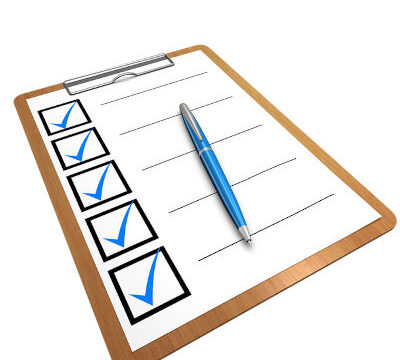
How is Alcohol Use Disorder Identified, and What are Your Best Treatment Options?
Unless you have struggled with addiction, it is difficult to know what it looks like when it happens to someone. It is important if someone has a problem, such as alcohol abuse, to be able to identify the problem as early as possible so that they can get help. The longer a person is addicted to alcohol and the more they drink, the more damage is done to their health, their life, their social structure, relationships, and mental state. The long-term effects of alcohol use disorder can be devastating not only for the person with the addiction but also for their friends and loved ones.
However, knowing someone has a problem is only half the solution. The second half is determining how to get help and what type of help to get. Fortunately, there are many options when it comes to treatment for alcohol addiction, and with the right help and support, you can find the best option for you or your loved one.
Table of Contents:
What is alcohol use disorder?
Alcohol use disorder is the more technical term for alcohol addiction.
Alcohol use disorder is defined as “a pattern of alcohol use that involves problems controlling your drinking, being preoccupied with alcohol, or continuing to use alcohol even when it causes problems.”
Once they start drinking, a person has trouble stopping or knowing when to stop to a point where it can harm their health. They also find themselves concerned more with their next opportunity to drink rather than with day-to-day responsibilities like work, school, and other productive things.

They will also continue drinking even when they know that it is causing harm to their life in some way, such as ruining relationships.
How is alcohol use disorder identified?
Now that you have a better understanding of what it means to have alcohol use disorder, we will discuss how it is identified and how to know if you or a loved one has a problem.
There are two ways that alcohol use disorder can be identified. One is through a test known as the Alcohol Use Disorder Identification Test (AUDIT), and the other is if a person meets the criteria set forth by one of the many agencies that study and report alcohol use disorder statistics.
The AUDIT is a test that measures drinking habits and behaviors to determine if a person has an alcohol use disorder. There is a clinical version of the test and a self-administered and reported version so that the two can be compared or so that if a person feels they have a problem, they can test themselves to see.
There is another measure of whether a person may be drinking excessively, which is a sign that the person may already have or may be developing an alcohol use disorder.

The National Institute of Health (NIH) has defined certain consumption levels as moderate or in the category of having a use disorder based on physiology and the amount consumed in a set period.
Moderate drinking is considered for males with two drinks per day and females with one drink per day. Anything over this is at risk of an alcohol use disorder, particularly if it continues or is frequent.
There are two categories of alcohol users that the NIH defines as problematic and potentially leading to alcohol use disorder.
Binge drinking
Binge drinking is when a person drinks excessively occasionally and then either doesn’t drink or drinks moderately other times. This type of behavior is often mislabeled as not being alcohol abuse because it may happen sporadically; however, if a pattern of binge drinking or binge drinking causes problems in a person’s life, then this is a clear indicator of an alcohol use disorder.
Heavy drinking
Heavy drinking is a pattern of having four or more drinks per day for men and three or more drinks per day for women. When most people think of alcoholism, this is what they consider. Many people develop the habit of drinking daily and become unable to control the amount they drink or find themselves craving alcohol daily to the point where they cannot function normally.
If a person meets these criteria, they may have developed alcohol use disorder and need treatment.
Why is treatment necessary for alcohol use disorder?
It may be easy to think that stopping drinking alcohol once you have become addicted cannot be all that difficult.
The truth is, alcohol is a drug like any other addictive substance, and once you become addicted, it is very difficult to quit using. Trying to quit alone is incredibly dangerous due to the side effects of withdrawal. Many people try to quit “cold turkey” and relapse almost immediately. Even with professional treatment, it is possible to relapse without the right support and supervision.
There are several reasons why treatment is necessary for alcohol use disorder.
As we discussed, it is difficult to stop drinking on your own. The cravings alone are enough to make a person reconsider quitting, but when this is combined with all the symptoms of withdrawal, it can be nearly impossible.
Depending on how long someone has been drinking and how much they have been drinking, symptoms of withdrawal can range from mild to severe, such as:
- Nausea
- Vomiting
- Fatigue
- Sweating
- Itching
- Difficulty concentrating
- Intense cravings
- Tremors
- Seizures
- Blackouts
- Muscle fatigue
- Anxiety
- Panic attacks
- Depression
- Mood swings
That is to say nothing of the long-term effects of alcohol addiction.
The second reason treatment is necessary to battle alcohol addiction is that many people find that they enjoy how it makes them feel, to the point that they want to continue drinking and feel that way all the time. Alcohol as a depressant drug causes a feeling of relaxation by slowing the central nervous system’s response. This lowers reaction speed and cognitive response and causes a person to have lower inhibitions, making them more social, talkative, and capable of doing things they may otherwise not do.
The third reason why treatment is necessary is due to a factor known as chemical dependence. Alcohol alters the chemistry of the brain and the central nervous system over time. As this happens, the body becomes accustomed to having that substance. Eventually, the body becomes fully dependent on alcohol to function normally, and alcohol tolerance increases, so a person must drink more to get the same effects. This ultimately leads to full-blown addiction.
What types of treatment are available
There are three main types of treatment for alcohol use disorder. We will cover them individually.
Inpatient treatment
Inpatient treatment is when a person goes to a treatment facility and stays there for the duration of the treatment program. This is the most intensive form of treatment in which a person is supervised 24/7 and has access to therapy and medical support at all times. Inpatient treatment typically lasts 30 to 90 days, but longer-term inpatient stays are possible.
Outpatient/intensive outpatient treatment
Outpatient and intensive outpatient treatment programs are similar in that they both allow a person to come to a treatment facility to receive treatment and then return home once treatment has ended.
For standard outpatient care, a person typically comes 2-3 times a week and has check-ins with a case manager every so often.
Intensive outpatient treatment is a bit stricter, with treatment 4-5 times per week and much more frequent check-ins to ensure the person stays sober.
Whereas inpatient treatment is best for those that need round-the-clock attention, outpatient treatment is for those that need less supervision and have lives and responsibilities that they need to manage daily.
In-home treatment
In-home treatment is a third option for those that need addiction treatment. It allows them to stay in their home and have specialists, medical personnel, and addiction counseling come to them. This is an important option for those who don’t want to leave their homes but need more personalized care and attention. It is also an important choice for those that value their privacy above all else.
How do I know if I have a drinking problem?
The best way to know if you have a drinking problem is to take an AUDIT test. However, some clear signs that your drinking is a problem include:
- Constantly wanting to drink instead of doing other things
- Thinking about drinking even when you’re not
- Continuing to want to drink even after bad things start to happen in your life
You may have a problem if you notice these signs or have lost control over how much you drink.
In-Home Alcohol Addiction Recovery with Elite Home Detox
Elite Home Detox brings the services of a traditional rehabilitation clinic to the comfort of a patient’s home. Since every patient’s circumstances and needs are different, our comprehensive treatment plan is tailored to the individual.
In-home alcohol addiction recovery is a modern solution for the busy, fast-paced lifestyles of today.
Personalized attention
Unlike a traditional addiction rehabilitation clinic, where patients meet in groups, in-home rehab means that our patients get dedicated, one-on-one attention.
Elite Home Detox provides a 24/7 onsite medical professional to monitor the patient, make changes to the treatment plan as necessary, and answer any questions that the patient, friends, or family may have. We are with our patients every step of the way to ensure a safe and healthy recovery with long-lasting results.
Convenient and private
Both inpatient and outpatient clinics require patients to travel to their destination. This is not only costly, but it also requires a significant amount of the patient’s time. In-home addiction rehabilitation works with the patient’s schedule, minimizing disruptions while maximizing results.
Some people may find group therapy beneficial. However, since addiction recovery is an intense and involved process, many patients prefer discretion while rehabilitating. That’s why Elite Home Detox brings our services directly to our patients for unmatched convenience and privacy.
Comprehensive, quality care
From genetics to social environment, many factors can contribute to a person developing an addiction to alcohol. These same factors need to be addressed during alcohol addiction rehab for a successful and lasting recovery. From detox to counseling that helps patients develop healthy coping mechanisms, Elite Home Detox offers the same services and quality of care as traditional rehab clinics.
Our team is thoroughly trained in addiction recovery, and every program is overseen by our medical director to ensure quality care.



 Harsh Brar is a Board Certified Family Nurse Practitioner specializing in addiction medicine and pain management. He holds a Master of Science in Nursing from Samuel Merritt University and ensures all Elite Home Detox clinical content aligns with current medical safety standards.
Harsh Brar is a Board Certified Family Nurse Practitioner specializing in addiction medicine and pain management. He holds a Master of Science in Nursing from Samuel Merritt University and ensures all Elite Home Detox clinical content aligns with current medical safety standards.